This April, as I watched Metamorphoses, SSFS’s first fully-staged Community Play since 2020, I reflected on the tradition’s legacy and reminisced on past productions. How is such a timeless and time-honored tradition born? Over the years, how has it changed with the zeitgeist? Why must it be preserved? Why must theater be preserved everywhere?
With the support of Johanna Cowie, I accessed the school archives and consulted the theater collection acquired in 2014 from Bruce Evans, a former SSFS drama teacher and director (and the originator of the Community Play).
Exploring the archived materials and retrograding to early SSFS, I was inspired by the school’s enduring legacy of theatrical creativity and community. My investigation culminated in an interview with Evans, whom I knew would share my enthusiasm for the topic and provide insightful firsthand reflections from his time at SSFS.
Ella Gilbert: Can you tell me a bit about your theater origin story and your story at SSFS?
Bruce Evans: I grew up in Tennessee. And I [started theater] as a kid at a community theater in the rural town that I grew up in, called Cumberland County Playhouse. My family was a part of the beginnings of that. It was [founded by] a playwright and actor from New York who moved down to Tennessee and wrote musicals. As a kid, my mother was in those plays and musicals, and she’d drag me along. It became this big thing for the community to do together.
I went to Earlham College, a Quaker college in Indiana, and I majored in biology. I did not go into the arts, although the arts were a big, strong influence all through my early life. I was always doing performing arts, but also visual arts, photography, and that kind of thing. It became a profession for me… Just by chance, I decided to take that path. And after a while, it just felt like it’d be really great to be settled in somewhere to teach.
It was so exciting, and Sandy Spring had such a wonderful arts department. I taught Upper School drama, and I really fell in love with working with the students. I learned very quickly to listen to what their interests were, because one of the difficult things is what plays do you pick? What material do you pick to work on? I certainly had a list of my own, but I would throw out ideas that I had and get the response from the students.
Because of my experience with community theater outside of the school, I had a deep desire to do something for the whole community that involved everybody. Parents, teachers, students… something we could work on together. Because the whole experience of working on something… it’s like a team. It’s like sports. You pull together. You do your best. There’s a bond that forms when you’re working hard together, and you learn to appreciate each other’s skills and talents.
I approached the arts department first, and then the administration as well, because it was another production that we would be doing, and kind of pitched the idea. And the head of school at the time, during my second or third year, gave the permission to do it. A very special play to me was To Kill a Mockingbird. It was my last show at the theater [in Tennessee] that I had been working at for a long time. I played Atticus. It was just a wonderful story, talking about things like racism… things that challenge us to think about who we are as people, and how we can be better people. So I decided that would be the first Community Play.
I put the word out, and there were parents that came out for auditions, administrative staff. It was a wonderful experience. I think people really saw what that could do. That was the beginning of what I like to think of as “growing together.” The school had been through some bumpy times, but it was a time we could all enjoy working on something together.
Gilbert: I wish I could have seen some of the productions that were put on back then.
Evans: Yeah. That’s one of the things about a play. You work really hard on it. It’s a process to help something grow and develop. And then there’s finally the performance. It’s all this work, and then it’s over. All you have is the memories, and what’s left behind in your mind. And I hope we left a lot of good memories. I know, for me, I have a lot of tremendous, wonderful memories, and got to know so many people, and got to have wonderful conversations about topics that really helped me grow. It was really important to me, and I felt a responsibility to make things work well.
Gilbert: Did you feel confident that the legacy of the Community Play would continue to be honored in the way you intended after you left the school?
Evans: Great question. I liked how, when I arrived at the school, I had the opportunity to make it what I wanted to make it. That’s what I love about the school. And I hoped, sincerely, that someone would pick it up. It’s a lot of work. It’s a challenge. You have to get involved in it to appreciate what it can do, and so many people approached it with a wonderful spirit of “Wow, I really want to do this.”
And it was hard casting a play because some were smaller casts. I felt it was important to do smaller productions. It broadened the type of material that we could cover. Not every show has a large cast. Metamorphoses is one of those. When I heard they were doing [it] recently, I was like, “Oh my gosh, that is another really special play.” It was the first Upper School play I did in the new PAC.
I was very involved in getting the new PAC built, and was a part of that process for several years. It was so wonderful to see it actually come to fruition. It was all about change, and Metamorphoses seemed like the perfect play to do. When I saw a professional version of [it], I thought, “I have to do this play.” It’s perfect for students. It’s got these vignettes, and it’s about classical mythology, the Ovid poems, all these things kids should be exposed to and understand. And it depicted the stories in such a beautiful way. It was a great one to do in the new transition.
The whole swimming pool piece of it… that was such a technical challenge for me. I had some sleepless nights, like, “Here I’ve got this brand new theater, and I’m putting a swimming pool in the middle of the stage!” I was very nervous about that. But it was special for the students and me.
With a pool, after every show, the costumes had to be dried, had to be hung up. It presented its own challenges, but well worth it. It was just gorgeous. People were just like, “Oh my gosh, this is beautiful.” And the students, too, just loved it.
Gilbert: I know that you put on To Kill a Mockingbird again for the tenth anniversary of the Community Play. I was wondering, thirty years after the first Community Play, what’s a show you would want to see SSFS do again?
Evans: Oh, wow. That’s a great question. I mean, To Kill a Mockingbird was one… and I ended up playing Atticus again. Part of it, I loved the role, and a number of people were saying, “Why aren’t you in the Community Play? You should do a role!” And I was like, “I can’t, I’m directing!” You know, it’s hard.
And Atticus was a very special role to me. I played it professionally. And it had been several years since I had done it. It was the first one, so it was like, ten years later, let’s do it again! I don’t know that I would do To Kill a Mockingbird again. There were some other ones like A Midsummer Night’s Dream that were wonderful. That’s always just a fun story to pick. It’s one of the most accessible Shakespeare shows, for all ages. So that might be one I would toss in the bucket for consideration… but I’d have to think more about that too.
Gilbert: It’s definitely a hard question.
Evans: It is. You were saying “repeat,” and I think it’s really good to bring new works. I love going downtown to Arena Stage, the Shakespeare Theater… As a habit, I did that while I was teaching. It was a way to get inspired, to see new works, and works I hadn’t considered. I love plays, and I love experiencing them. So that was my way of building my repertoire of possible shows I’d like to try.
Gilbert: That’s very cool. I was looking at some past Community Play programs in the archives, and a lot of the older ones read “courtesy of the print shop.” It seems like the productions were very community-sponsored—everyone was very involved.
Evans: I mean, theater, to me, [can involve] all the arts. It’s music, it’s dance, it’s performance, it’s the scenery, graphic arts… all these things. And we had this wonderful, strong arts department with these very talented teachers and students. Gwen Handler ran the print shop, and I’d put together the programs, and they would run it off in the print press. The old print press. Of course, now, it can be photocopied. But she had the print press going down in the print shop, and students would print it out.
Also, dance. Having students choreograph. There were always some really good, talented students. [Arlene Horowitz] and [Hannah Kerr] had them choreographing all the time. That’s what they did. Beautiful, beautiful dance concerts. Part of the problem was if they had time to really devote to it. Students were so involved in different things.
The whole idea was to bring in the talent in the community. The parents, too. There were some really talented parents. And it really was a community effort. It was fun to kind of be at the hub… to facilitate that and coordinate that.
Gilbert: What were some challenges that you experienced as a director? Maybe just one thing?
Evans: It was always a challenge to pick the right material for who we had in our community. I didn’t do that randomly. It was like, “What would be the great thing to do now?” I would have conversations with other people, some of the English teachers. I felt I needed to be inspired by what we were doing, just like I was wanting the students to be inspired. Because if you’re just going through the motions, it shows onstage. You need to have your heart in it. And I certainly did, and so many people did… so it made it special.
Gilbert: SSFS emphasizes stewardship and community service. Do you think of theater as a form of service?
Evans: I mean, it’s service to the community. You’re trying to make something for the community to enjoy and get something out of. It takes work to do it. You get into it and you realize this is not as easy as you think it is, to do it well. It’s like any discipline. Some people it comes more naturally to, but I’m a firm believer that everybody can do it. They’ve got that inside of them. We’re all human, and we’re able to portray humans. It’s about understanding yourself, to do that. That, sometimes, is difficult work.
Gilbert: And I feel like there are so many opportunities within the Community Play for different roles, too. If you’re someone who doesn’t like to act, there’s lighting and so many other options.
Evans: Yes. For stagecraft students, or even parents who got involved behind the scenes, there was a sense of pride in “I contributed to this, and it’s got to be good. We need to be there. All the actors are depending on us. The story is depending on us.” It’s really important that it all works together well in order to create the magic, and have people get lost in the story, and just feel it… in their hearts, in their bones… and enjoy it. And come out of a performance feeling, “Wow, that touched me.” Or “I had so much fun watching that.”
Gilbert: And a sense of belonging there as well.
Evans: Yes, exactly. There’s something about that. I learned that early in my childhood. I remember sitting in the audience in the theater I talked about in Tennessee as a kid, and I was sitting with my family, watching the founder of the theater, Paul Crabtree, up there, telling stories. And at some point, I was just enthralled with it, and I just realized, “It is so quiet in here.” And I started looking around, paying attention to the audience, and they’re all riveted on him. And you could just tell, there’s something really special going on here. We’re all sitting here together, and we’re just so focused, altogether, on this moment. And that was a realization that meant a lot to me. Like, this is really special stuff.
Gilbert: That is very cool. Definitely seems very collective and very human in that moment.
Evans: Yes. I think that’s theater. It teaches us about who we are. As does literature, and a number of things, but I think it does in a really complete way. That’s where my heart is. That’s why I got into it.



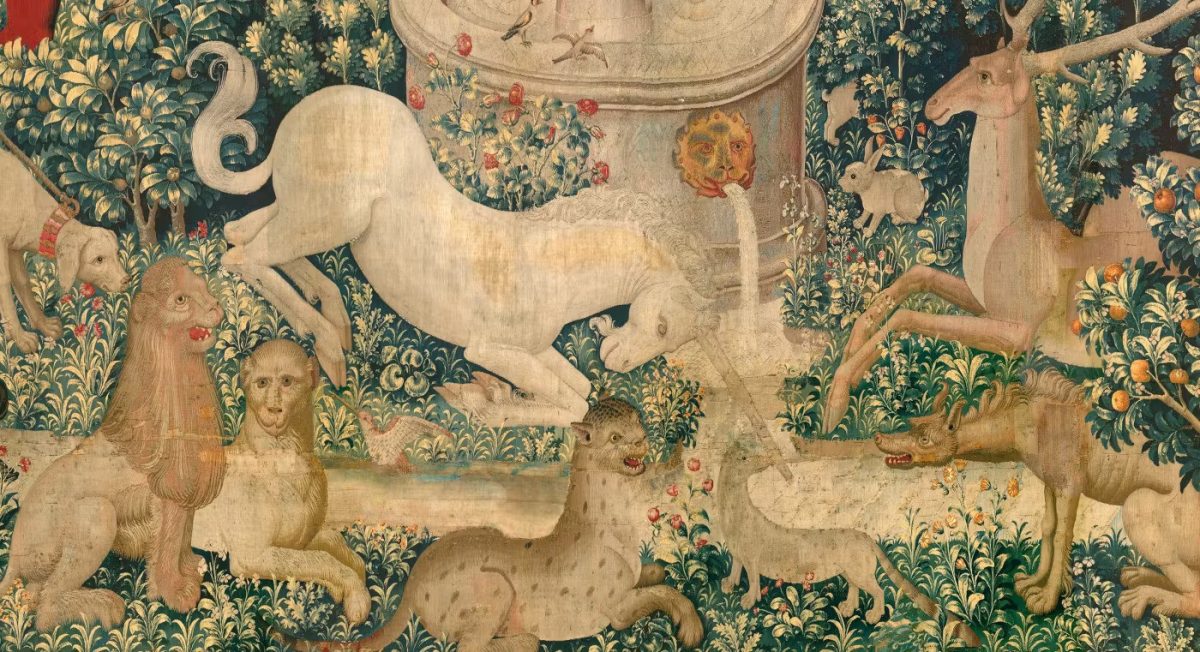
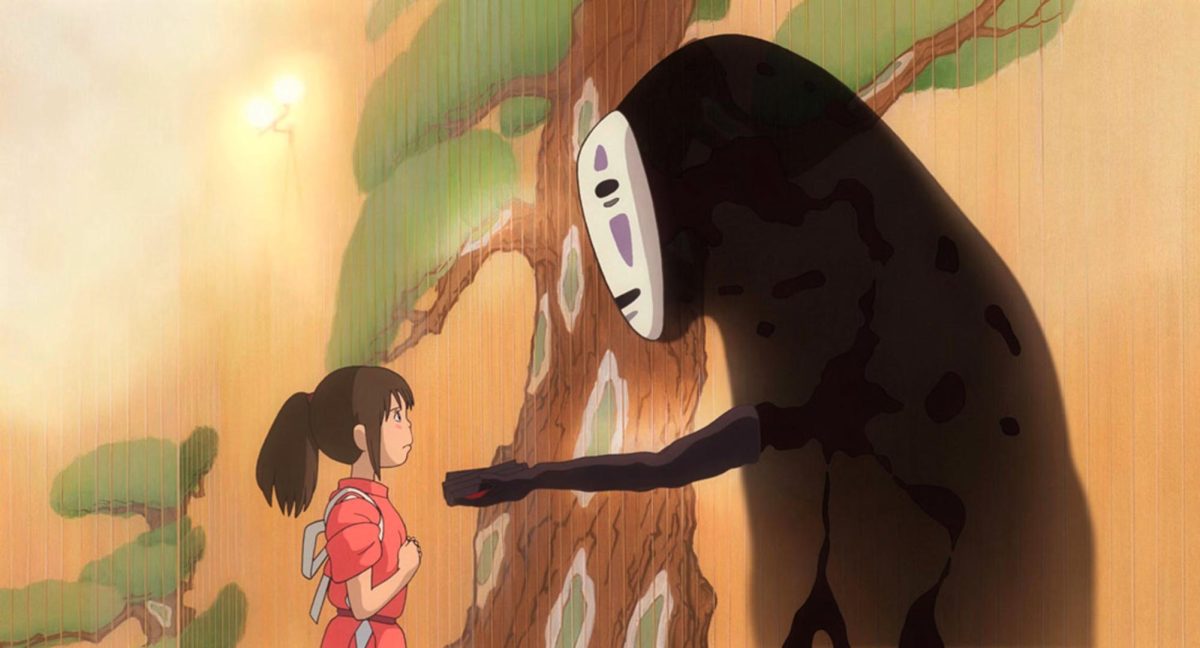
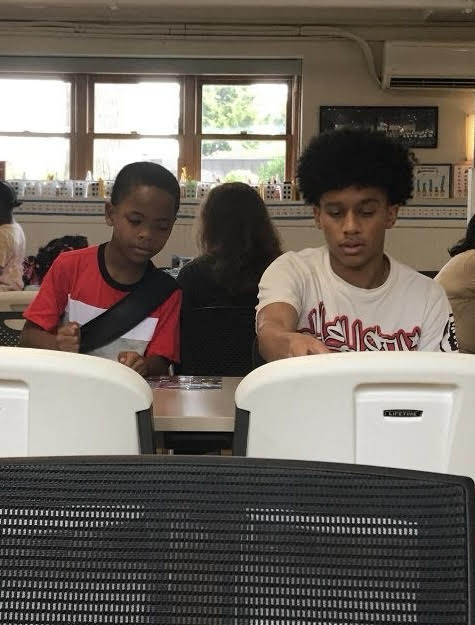


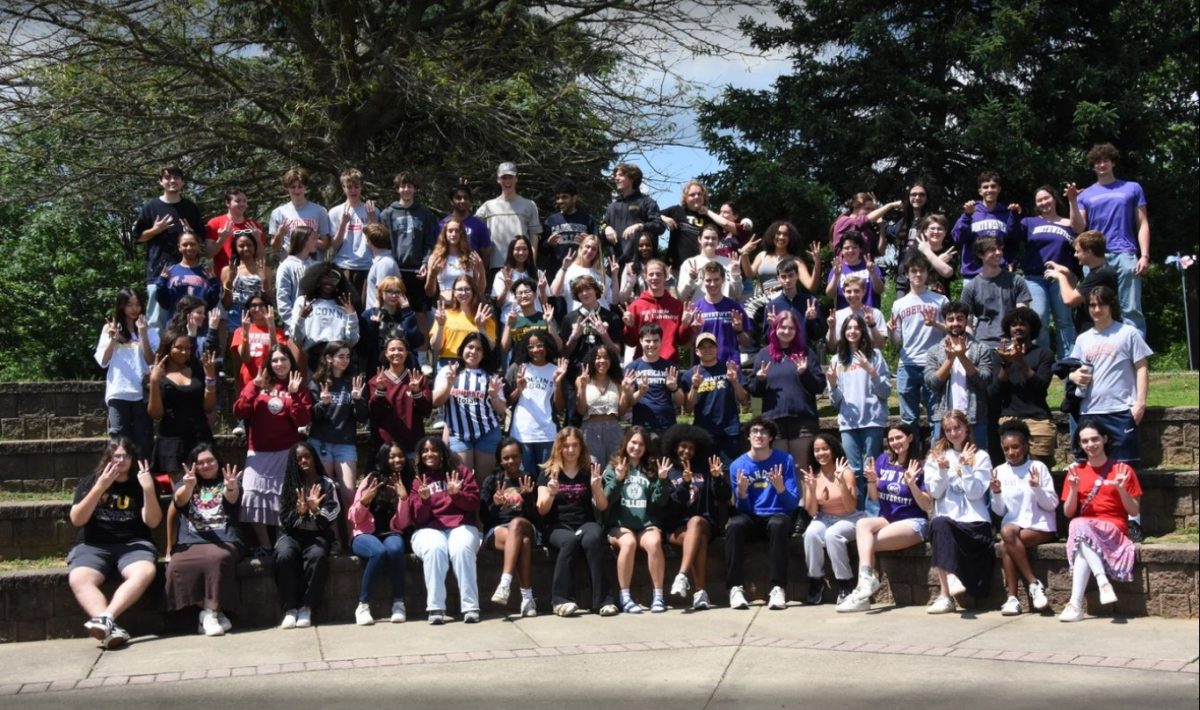
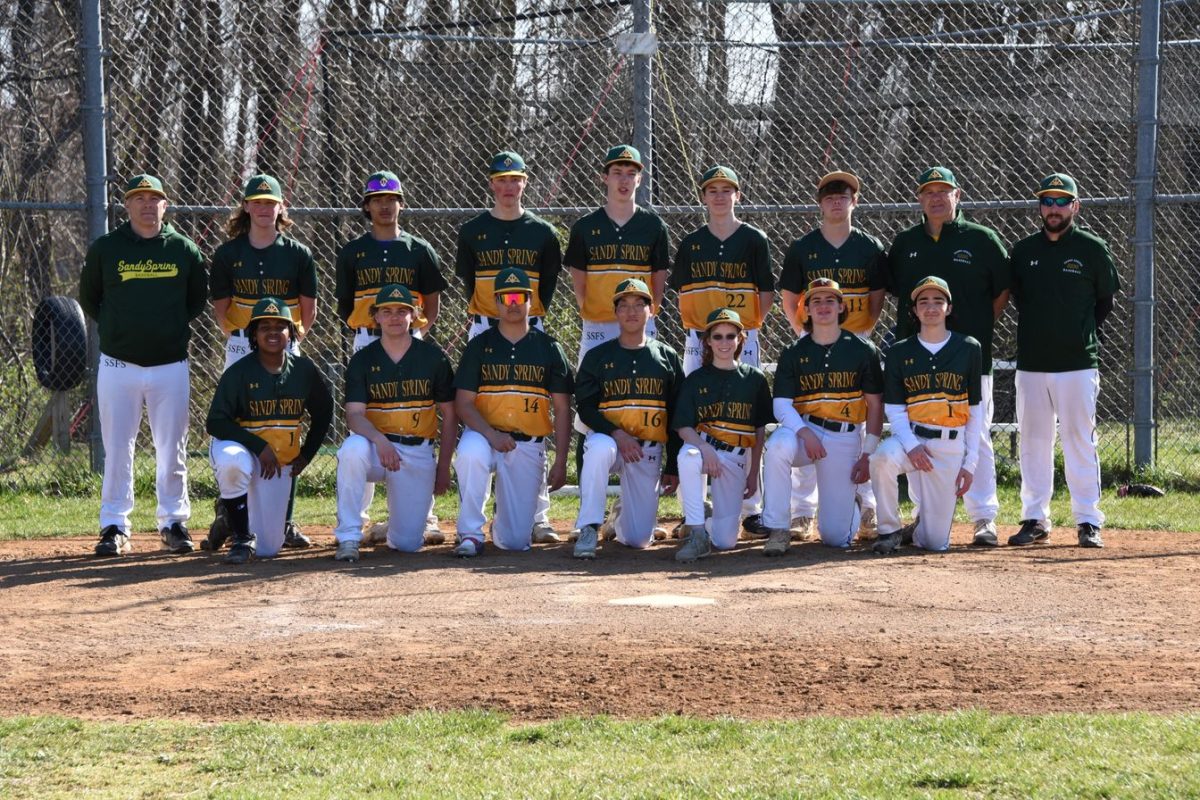
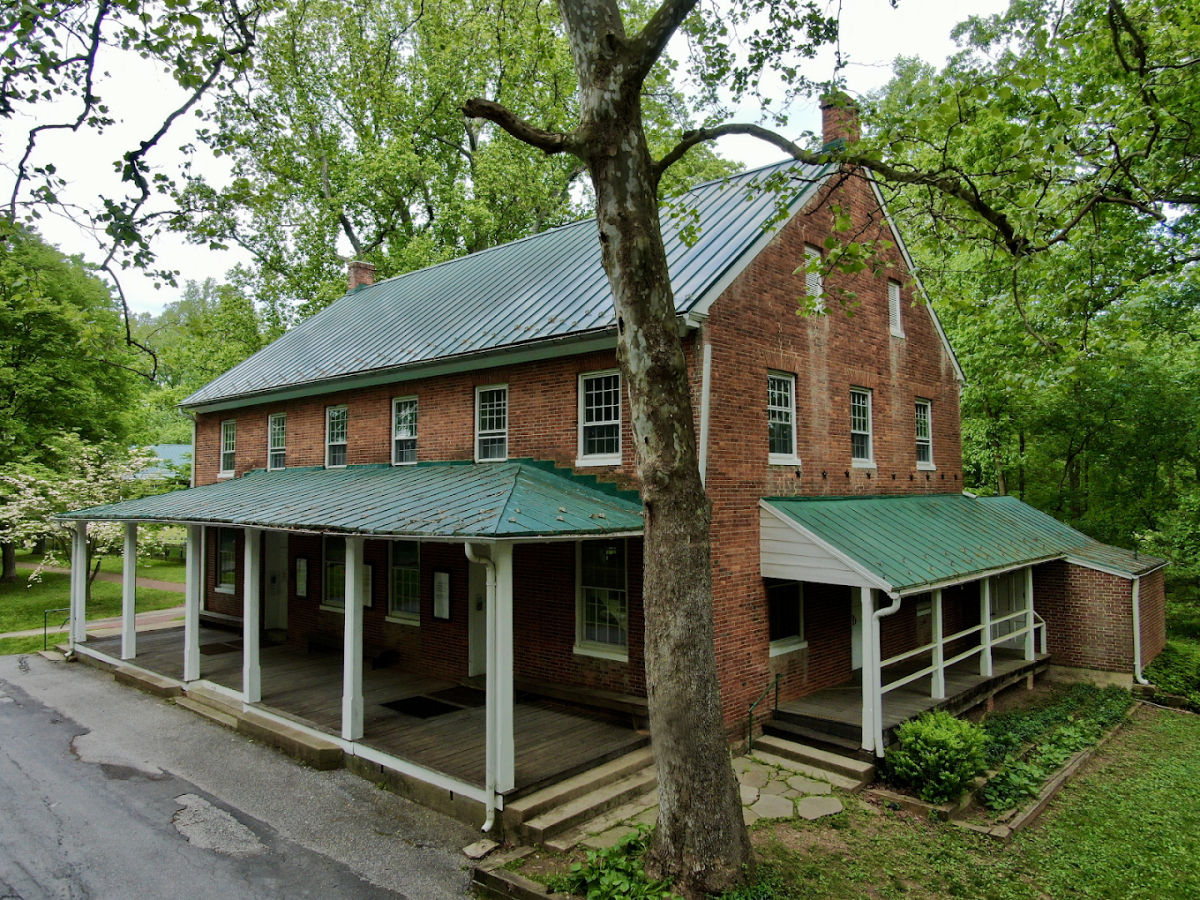
olivia • Jun 22, 2024 at 10:53 am
great and meaningful interview!!